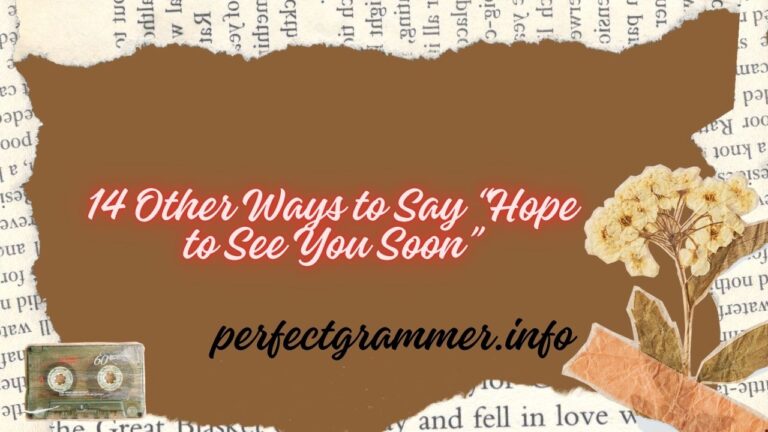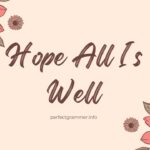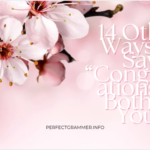There are many ways to say “Hope to see you soon”, depending on the situation and tone you want to set. In a casual setting, you might say “Catch you later” or “See you around”, which feel relaxed and friendly.
For a professional or formal approach, phrases like “I look forward to our next meeting” or “Until we meet again” work well. If you want something warm and affectionate, you could say “Can’t wait to catch up” or “Take care—see you soon” to express excitement.
For a more playful tone, phrases like “Until next time, stay awesome” or “See you when I see you” add personality. Choosing the right phrase helps set the mood and strengthens your connection with the other person.
What Does “Hope to See You Soon” mean?
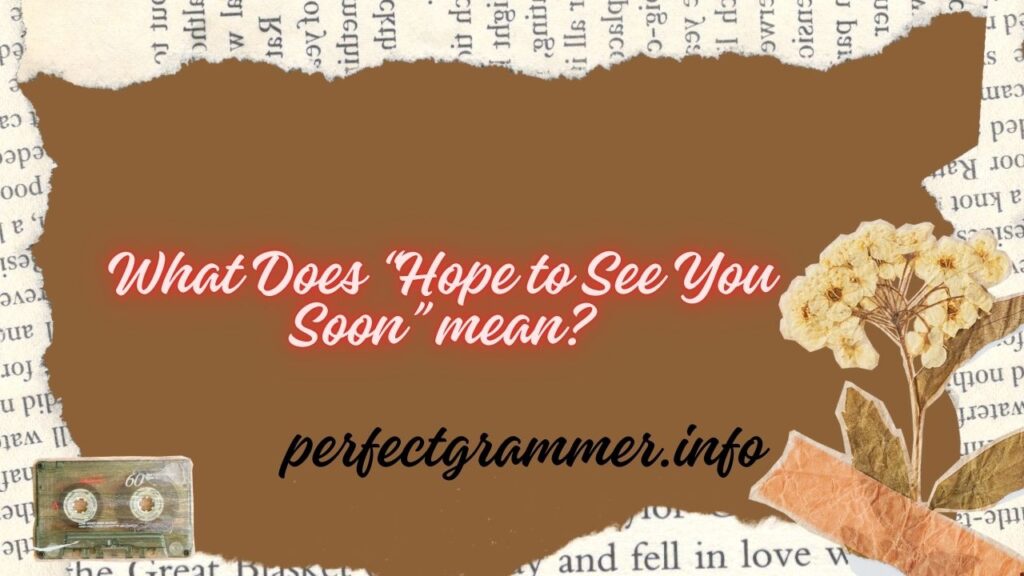
“Hope to see you soon” is a friendly and polite expression used to convey a desire to meet someone again in the near future. It can be used in both casual and formal settings, depending on the relationship between the speakers.
The phrase often implies that the speaker enjoys the company of the other person and looks forward to another interaction. It can be used in farewells, emails, or messages to maintain warmth and connection. While it doesn’t set a specific date, it expresses a genuine wish to meet again soon.
Advantage or Disadvantage
Advantages of Saying “Hope to See You Soon”
- Creates a warm and friendly connection, making the other person feel valued.
- Keeps communication open, leaving room for future meetings or interactions.
- Can be used in both formal and casual settings, making it a versatile phrase.
- Adds a positive and polite tone to farewells, emails, or conversations.
Disadvantages of Saying “Hope to See You Soon”
- Lacks a specific timeframe, which may cause uncertainty about the next meeting.
- May sound insincere if used too casually or without real intention.
- Not always suitable for professional settings, where a more formal closing might be preferred.
- Can create false expectations, especially if there are no plans to meet again.
Casual & Friendly
Catch you later.
This phrase is commonly used among friends and acquaintances in an informal setting. It conveys a relaxed and easygoing attitude, implying that you expect to see the person again soon, but without specifying a time or place.
Example: “It was great hanging out today. Catch you later”
Short Letter: Hey Jake, Had an awesome time at the game today. Let’s plan another weekend out soon. Until then, catch you later. Cheers, Tom
See you around.
This phrase is great for situations where you don’t have specific plans to meet again but still expect to see the person occasionally. It’s often used among neighbors, classmates, or coworkers.
Example: “I’ll be busy next week, but see you around”
Short Letter: Hey Lisa, It was lovely catching up at the cafe today. I’m sure we’ll run into each other again soon. See you around. Best, Emma
Looking forward to seeing you.
This phrase expresses excitement and anticipation for an upcoming meeting. It is slightly more formal than the previous phrases and is often used in social invitations or professional settings.
Example: “Looking forward to seeing you at the wedding next weekend”
Short Letter: Hi Sophie, I can’t wait for our trip next month. It’s been too long since we last caught up. Looking forward to seeing you. Warm regards, Anna
Can’t wait to see you.
This phrase conveys strong excitement and eagerness to meet someone. It is often used in close relationships, such as family or friends.
Example: “Only a few more days until your visit. Can’t wait to see you”
Short Letter: Dear Mom, I’m so excited that you’re coming over for the holidays. I’ve missed you so much. Can’t wait to see you. Love, Sarah
See you next time.
This is a simple and casual way to say goodbye while implying that there will be another meeting in the future.
Example: “That was fun. See you next time”
Short Letter: Hey Mike, Enjoyed our time at the park today. Let’s do it again soon. See you next time. Cheers, David
Read This Blog Also : 16 Other Ways to Say “Thank You for Your Patronage”
Formal & Professional
I look forward to our next meeting.
This phrase is polite and professional, making it suitable for business or work-related interactions.
Example: “Thank you for the discussion today. I look forward to our next meeting.”
Short Letter: Dear Mr. Johnson, It was a pleasure discussing the project with you. I look forward to our next meeting to explore further ideas. Best regards, Emily
Until we meet again.
This phrase is slightly poetic and formal, often used when parting ways for an extended period.
Example: “It was wonderful working with you. Until we meet again”
Short Letter: Dear Susan, I have truly enjoyed our time working together. Wishing you success in your next chapter. Until we meet again. Sincerely, Robert
Hope our paths cross again soon.
This phrase expresses a desire to meet again, though it does not specify when or where.
Example: “Safe travels. Hope our paths cross again soon.”
Short Letter: Dear Laura, It was lovely connecting at the conference. I hope our paths cross again soon. Best wishes, Mark
Looking forward to connecting again.
This phrase is professional yet warm, often used in networking or business relationships.
Example: “It was great speaking with you. Looking forward to connecting again.”
Short Letter: Dear James, I appreciate our conversation at the event. Looking forward to connecting again in the future. Best, Sophia
Warm & Affectionate
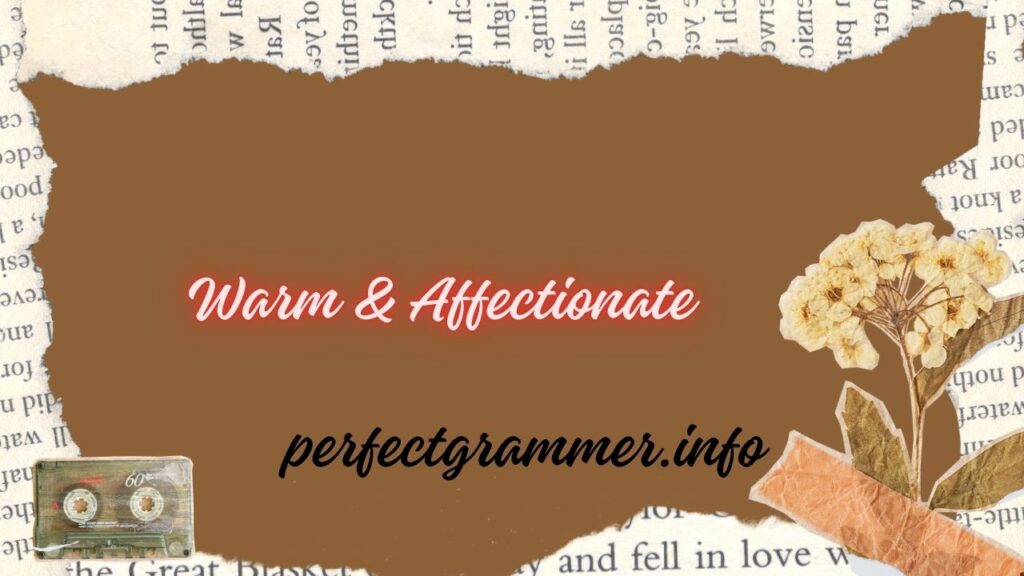
Can’t wait to catch up.
This phrase conveys excitement about reuniting and having meaningful conversations.
Example: “It’s been so long. Can’t wait to catch up”
Short Letter: Hey Rachel, It’s been forever since we last met. Let’s set a date soon—I can’t wait to catch up. Hugs, Mia
Take care—see you soon.
This phrase is both caring and reassuring, often used among close friends and family.
Example: “Take care—see you soon”
Short Letter: Dear Aunt Mary, Wishing you safe travels back home. Take care—see you soon. Love, Alex
Hoping we meet again soon.
This phrase expresses a desire to meet again but leaves it open-ended.
Example: “It was lovely seeing you. Hoping we meet again soon”
Short Letter: Dear Julia, Our time together was wonderful. Hoping we meet again soon. Warm regards, Nathan
Playful & Unique
Until next time, stay awesome.
This phrase adds a fun and upbeat tone to a farewell.
Example: “You’re the best. Until next time, stay awesome”
Short Letter: Hey Tom, Had a blast today. Keep being amazing—until next time, stay awesome. Cheers, Jake
See you when I see you.
This phrase is informal and humorous, implying a casual approach to the next meeting.
Example: “No set plans, but see you when I see you”
Short Letter: Hey Sam, No rush to plan, but let’s hang out soon. See you when I see you. Take care, Ben
Frequently Asked Questions
What does “Hope to see you soon” mean?
It expresses a desire to meet someone again in the near future.
Can “Hope to see you soon” be used professionally?
Yes, but in formal settings, alternatives like “I look forward to our next meeting” are better.
Is “See you when I see you” a serious farewell?
No, it’s a playful and informal way of saying goodbye.
What is a warm way to say “Hope to see you soon”?
“Take care—see you soon” is a caring and affectionate alternative.
Does “Until we meet again” imply a long farewell?
Yes, it’s often used when parting for an extended time.
Conclusion
There are many ways to say “Hope to see you soon,” each suited to different situations. Whether casual, formal, warm, or playful, choosing the right phrase helps express your feelings and maintain connections. The right words can make goodbyes feel more meaningful and set the tone for future interactions.
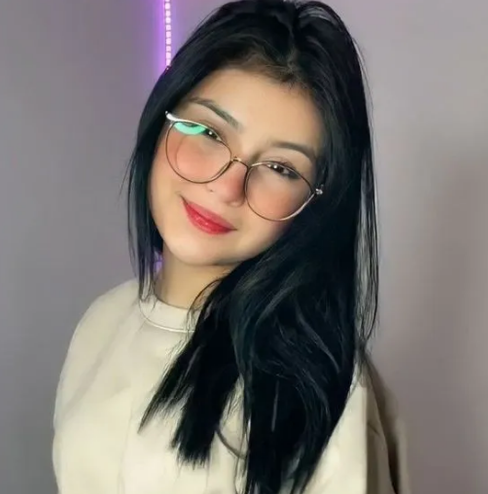
SEO specialist focused on enhancing website visibility, driving organic traffic, and optimizing user experience for better conversions.

